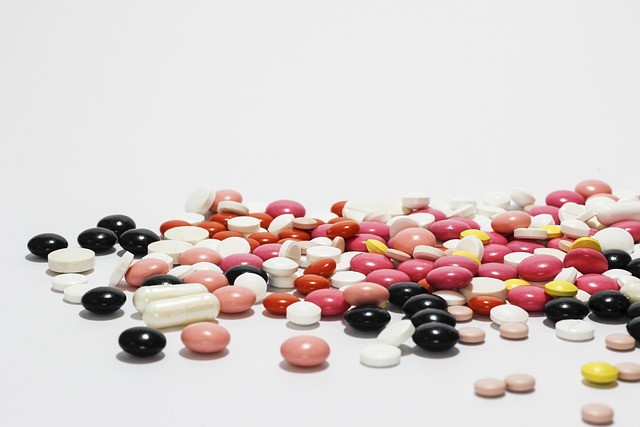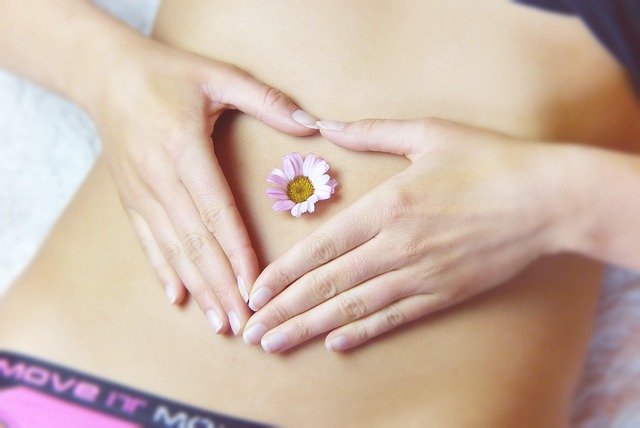Contact Us 720-964-1335 or 901-675-6125
Antibiotics and Your Gut Health: What Every Woman 40+ Should Know

Introduction
Antibiotics have saved millions of lives, but they can also disrupt your health if not used thoughtfully. For women over 40—especially those on a weight loss journey or taking GLP-1 medications—understanding how antibiotics affect your gut, metabolism, and immune system is essential. If you’ve ever taken antibiotics and felt “off” for weeks afterward—or noticed changes in digestion, skin, or weight loss progress—you’re not imagining it.
In this article, we’ll explore the double-edged sword of antibiotics: when they’re necessary, how they can silently sabotage your gut and overall wellness, and what steps you can take to protect and repair your body. You’ll also learn how Ample Health & Wellness’ 21-Day Better Gut Health Challenge can help you bounce back stronger.
When Are Antibiotics Actually Necessary?
Antibiotics are designed to treat bacterial infections, not viruses like the cold or flu. Still, millions of prescriptions are written each year for viral illnesses, which fuels antibiotic resistance and increases the risk of side effects. Overuse or requesting antibiotics “just in case” can lead to:
- Antibiotic-resistant bacteria that make future infections harder to treat
- Weakened immune response over time
- Gut microbiome imbalances that disrupt digestion, weight regulation, mood, and more
You truly need antibiotics when:
- You have a diagnosed bacterial infection such as strep throat, a urinary tract infection (UTI), or bacterial pneumonia
- A medical provider has ruled out viral causes
- Your symptoms worsen despite rest, hydration, and self-care
What Antibiotics Really Do to Your Body & Gut Health
Antibiotics don’t discriminate. They kill both harmful bacteria and beneficial ones that keep your digestive and immune systems balanced. This is especially concerning for women over 40, who may already have reduced microbial diversity due to age, diet, stress, or medications such as GLP-1s, proton pump inhibitors (PPIs), or hormonal therapies.
After a round of antibiotics, you might notice:
- Bloating, gas, or constipation
- New food sensitivities
- Weakened immunity or recurring infections
- Weight loss plateaus or slowed metabolism
Your gut microbiome, the trillions of bacteria living in your digestive tract, plays a vital role in hormone balance, appetite regulation, and nutrient absorption. When this ecosystem is disrupted, your whole body feels it.
Why Women Over 40 (Especially on GLP-1s) Need Extra Gut Support
As we age, our ability to maintain a diverse gut microbiome declines. Add in hormonal changes, stress, and dietary restrictions, and it becomes harder for the gut to bounce back from disruptions. GLP-1 medications, while highly effective for weight loss, can also slow digestion and alter gut bacteria balance, making recovery after antibiotics even more important.
Women over 40 on a holistic weight loss journey may experience:
- Poor medication response if the microbiome remains imbalanced
- Reduced nutrient absorption, leading to fatigue or nutrient deficiencies
- Mood changes due to altered serotonin production in the gut
- Brain fog or low energy linked to gut inflammation
Holistic Steps to Take When You Need Antibiotics
If you do need antibiotics, don’t panic, just have a plan. A proactive approach can help protect your gut and get you back on track faster.
Before or during antibiotics:
Taking care of your gut from day one can reduce the impact of antibiotics.
- Take a high-quality probiotic at least 2–3 hours apart from your antibiotic to help replenish beneficial bacteria
- Increase fiber intake with foods like berries, lentils, flaxseed, and oats to feed your healthy microbes
- Avoid alcohol and added sugars, which encourage harmful bacteria growth and slow healing
After antibiotics:
Your recovery phase is just as important as the treatment itself.
- Gradually reintroduce high-FODMAP foods if previously restricted to avoid digestive upsets
- Continue probiotic support for at least 30 days
- Incorporate fermented foods like sauerkraut, kimchi, kefir, or unsweetened yogurt daily
- Support gut lining repair with bone broth, L-glutamine supplements, or collagen peptides
Red Flags: When to Call Your Provider
While natural strategies are powerful, antibiotics are still essential in some cases. Seek medical care if you experience:
- Fever lasting more than 48 hours
- Thick, colored mucus with sinus or respiratory symptoms
- Painful urination with blood or fever
- Pus-filled wounds or spreading redness on the skin
- Severe digestive symptoms like persistent diarrhea or dehydration
Never stop antibiotics early or self-prescribe. Doing so can worsen infections and contribute to antibiotic resistance.
How Ample Health & Wellness Supports Your Gut Reset
Many women find themselves craving sugar, feeling fatigued, or struggling with mood changes after antibiotics. That’s because your gut and brain are deeply connected, and your body is working overtime to restore balance.
With the 21-Day Better Gut Health Challenge, you’ll learn how to:
- Identify and address symptoms of gut disruption
- Create a personalized food rotation and probiotic plan
- Reduce inflammation with targeted, anti-inflammatory nutrition
- Rebuild energy and digestion using the FRESH Framework
Whether you’re actively recovering from antibiotics or preparing your gut for future resilience, this program offers step-by-step guidance tailored to your age, medications, and health goals.
Click here to join the 21-Day Better Gut Health Challenge and give your digestion, metabolism, and immune system the reset they deserve.
Final Thoughts
Antibiotics can be life-saving, but for women over 40, especially those on GLP-1 medications or navigating hormonal changes, they require a mindful recovery plan. By understanding how antibiotics affect your gut, metabolism, and immunity, and by using proven holistic strategies, you can protect your health and keep your weight loss journey moving forward.
You don’t have to guess what comes next. Let Ample Health & Wellness guide you back to balance — your gut, your health, and your energy will thank you.

References
- Lange, K., Buerger, M., Stallmach, A., & Bruns, T. (2016). Impact of antibiotics on the human microbiome and consequences for host health. Gut Microbes, 7(4), 292–302. https://doi.org/10.1080/19490976.2016.1210505
- Vangay, P., Ward, T., Gerber, J. S., & Knights, D. (2018). Antibiotics, pediatric dysbiosis, and disease. Cell Host & Microbe, 24(2), 187–199. https://doi.org/10.1016/j.chom.2018.07.014
- Zarrinpar, A., Chaix, A., Xu, Z. Z., Chang, M. W., Marotz, C. A., Saghatelian, A., … & Knight, R. (2022). Antibiotics in the era of the microbiome. The Lancet Gastroenterology & Hepatology, 7(9), 791–803. https://doi.org/10.1016/S2468-1253(22)00042-2
